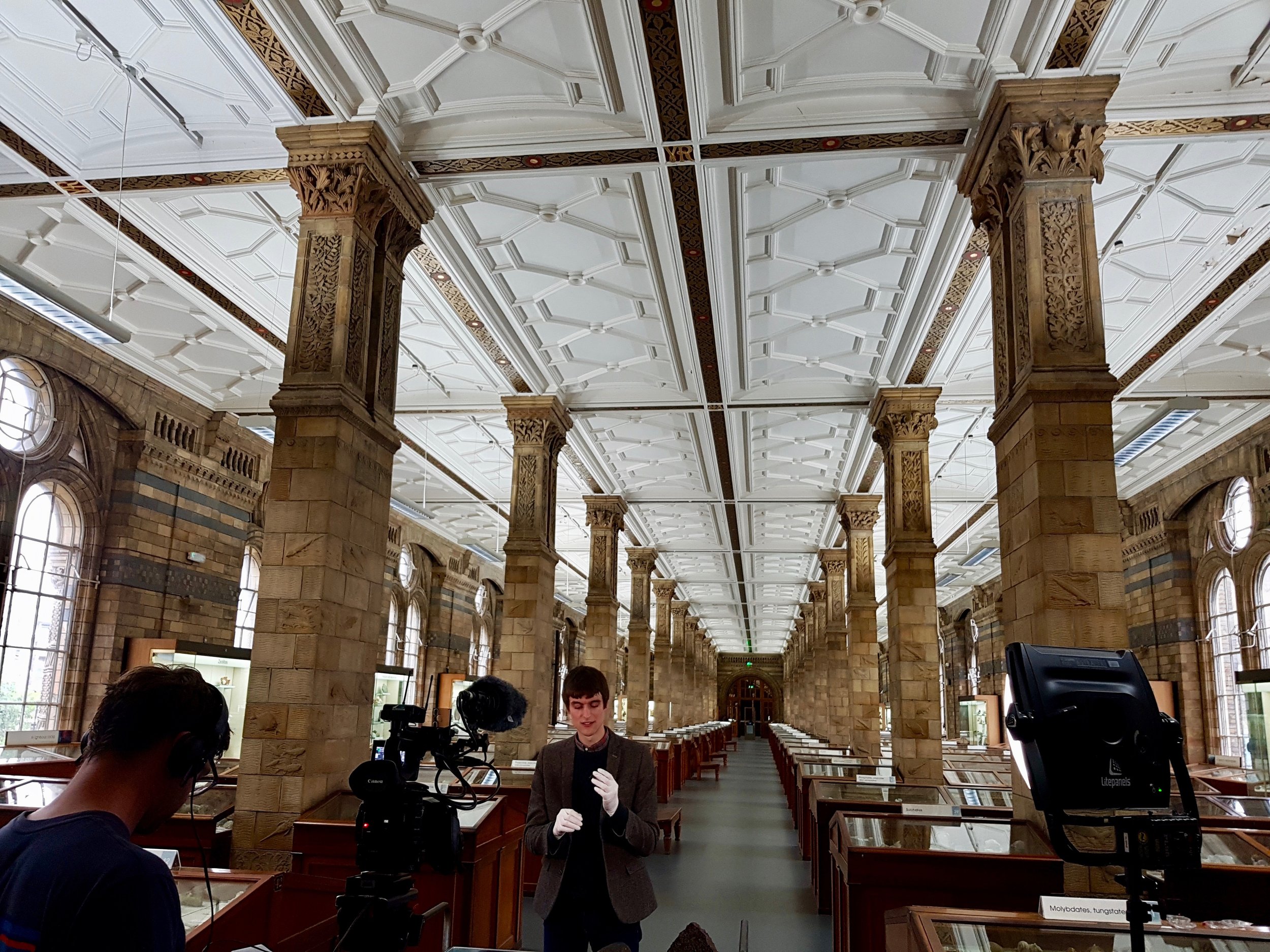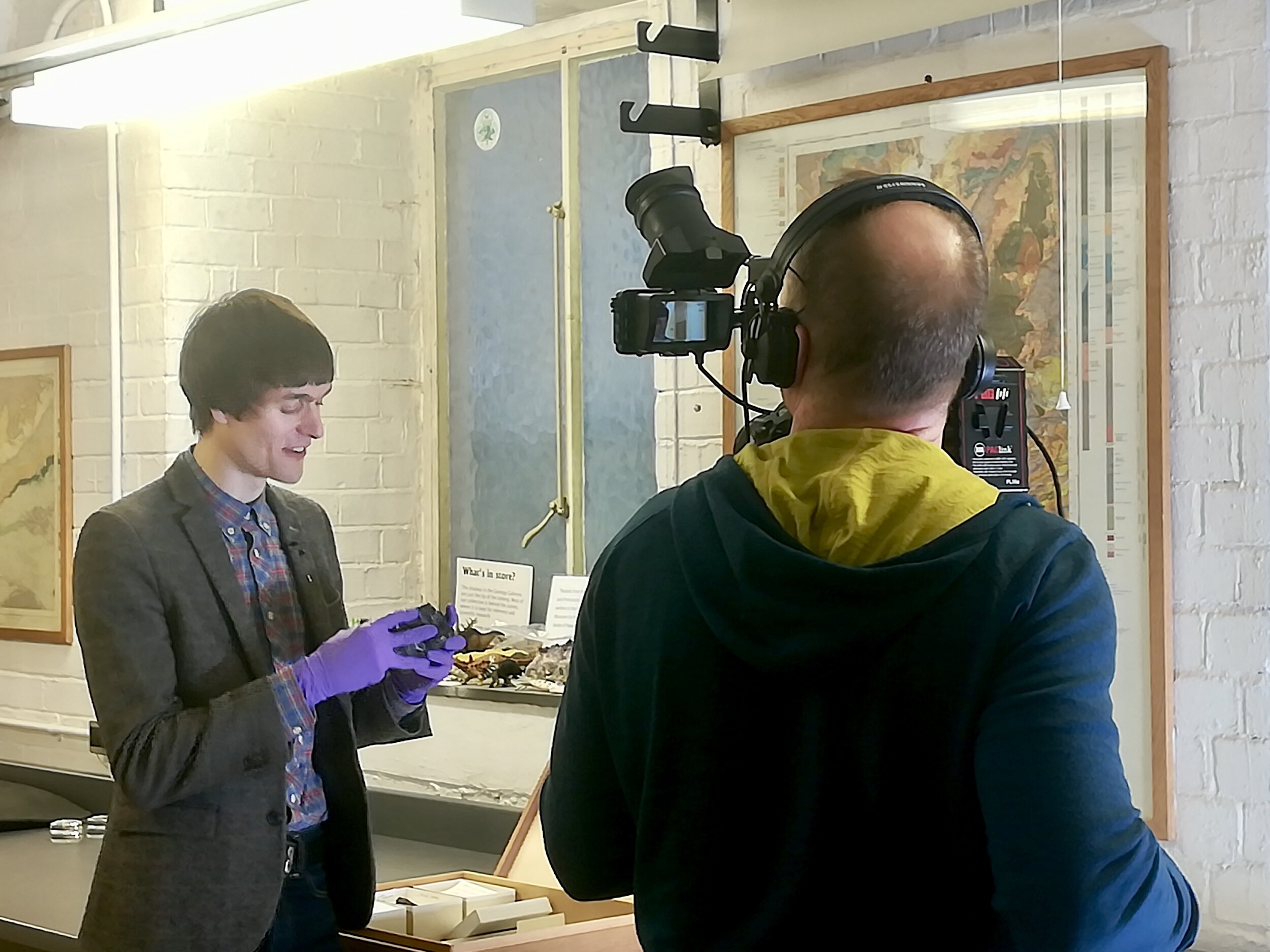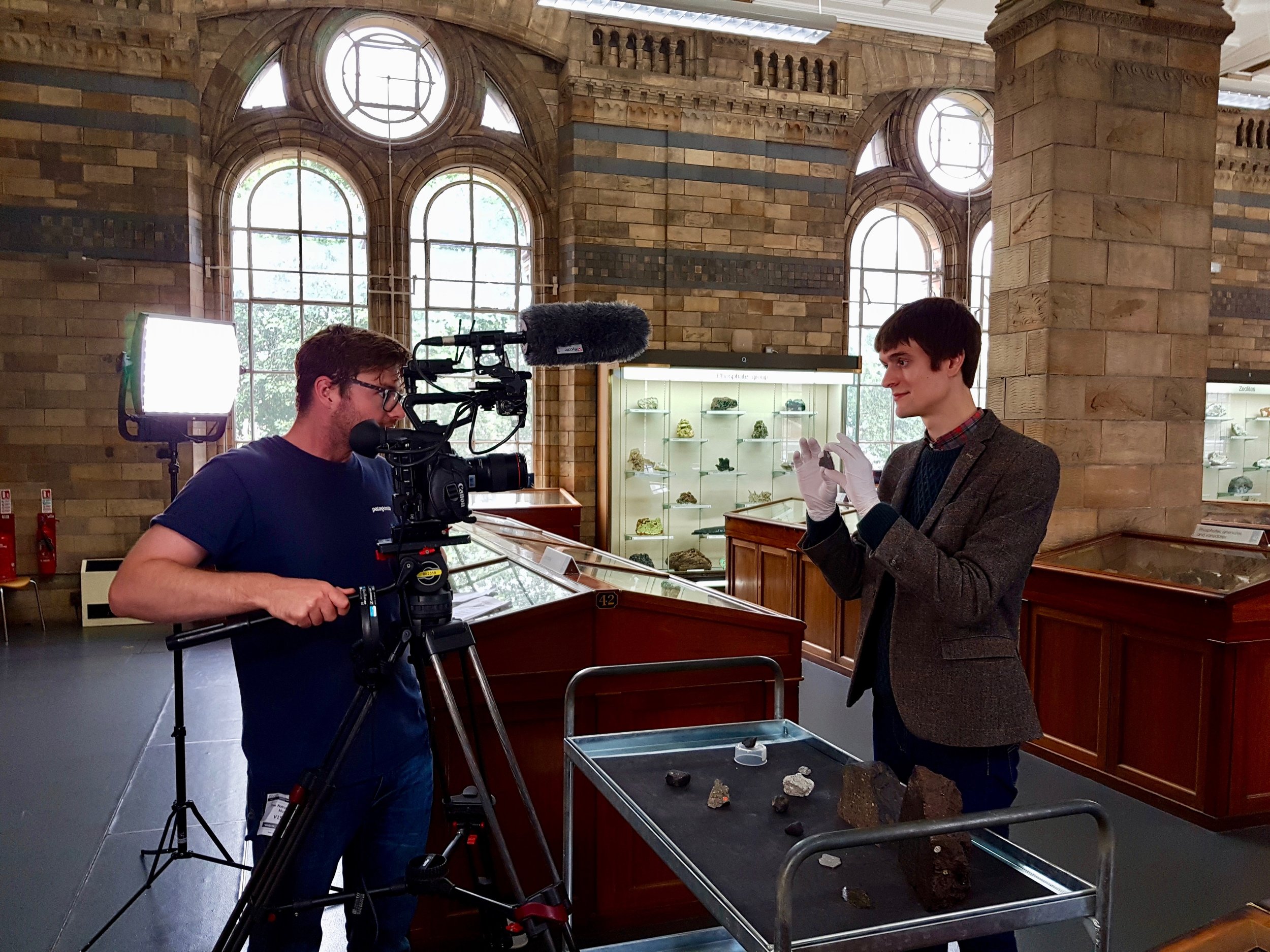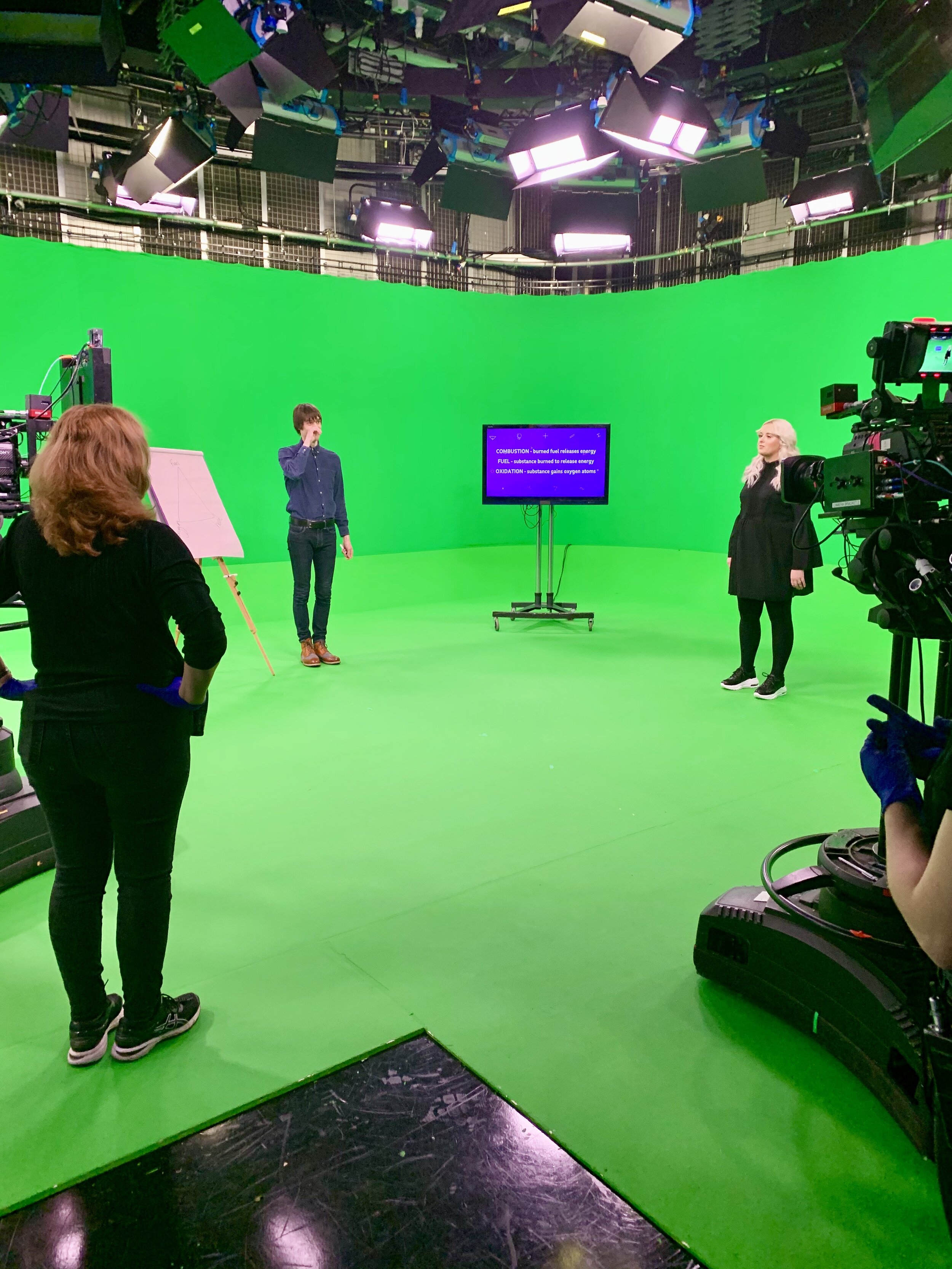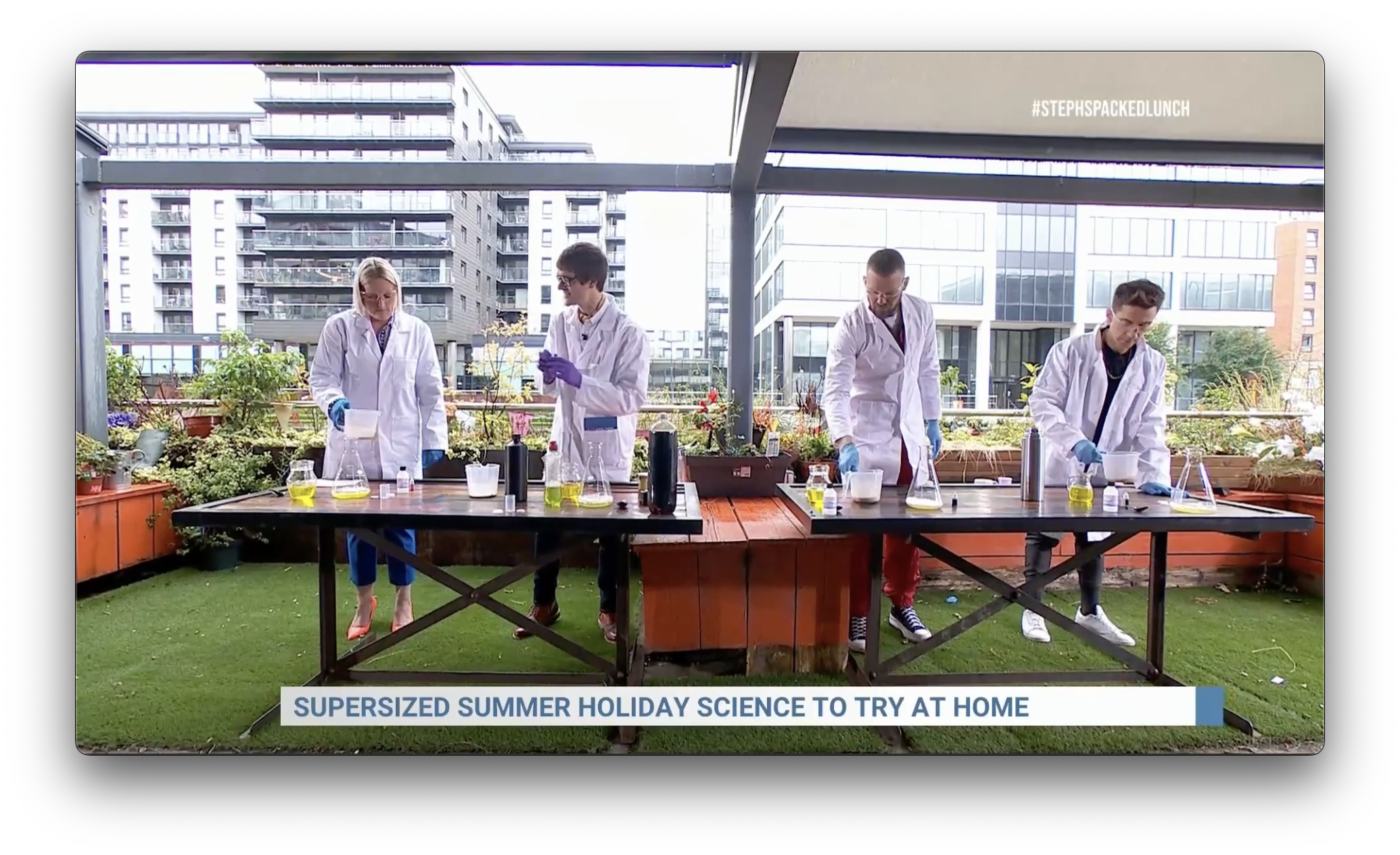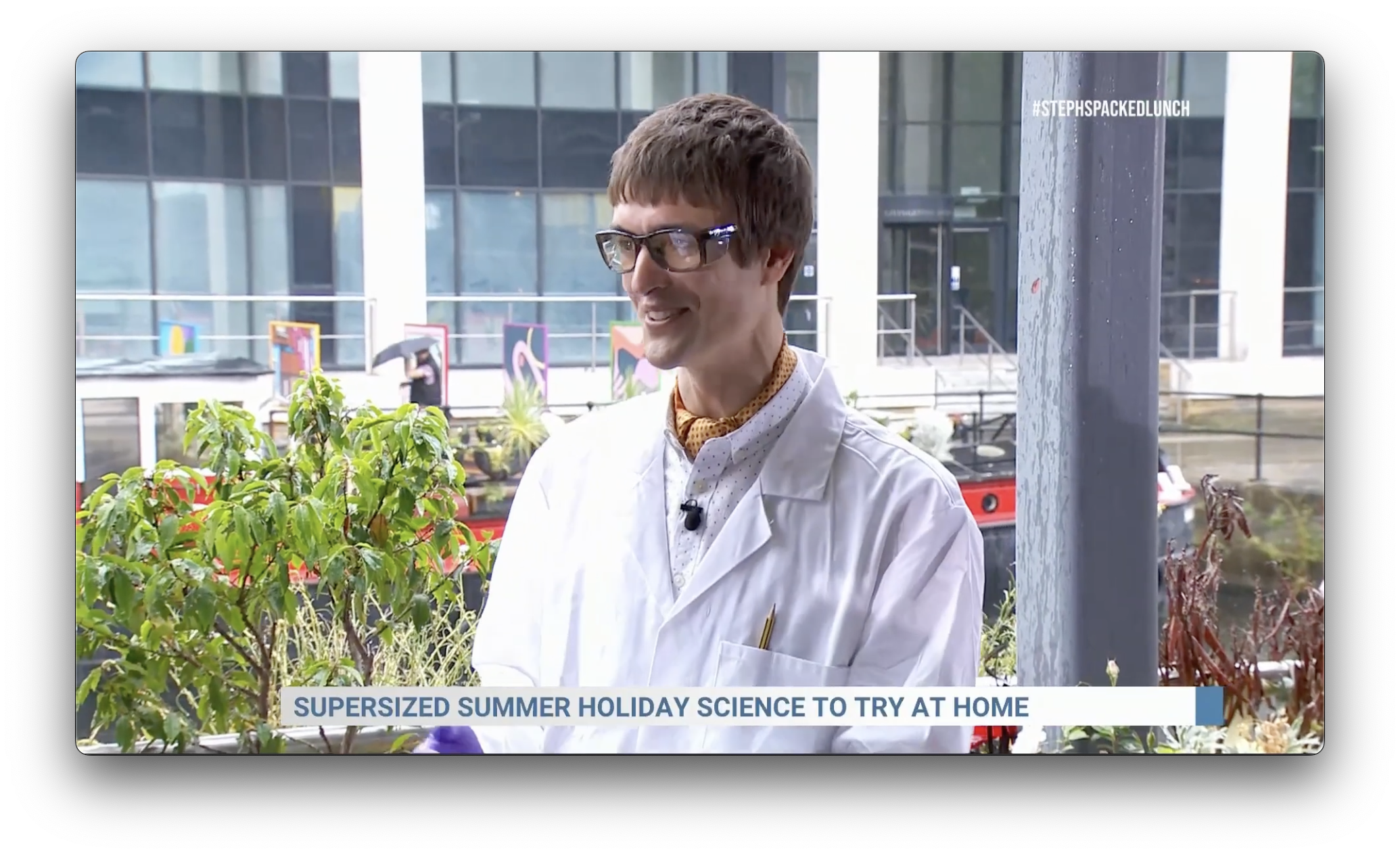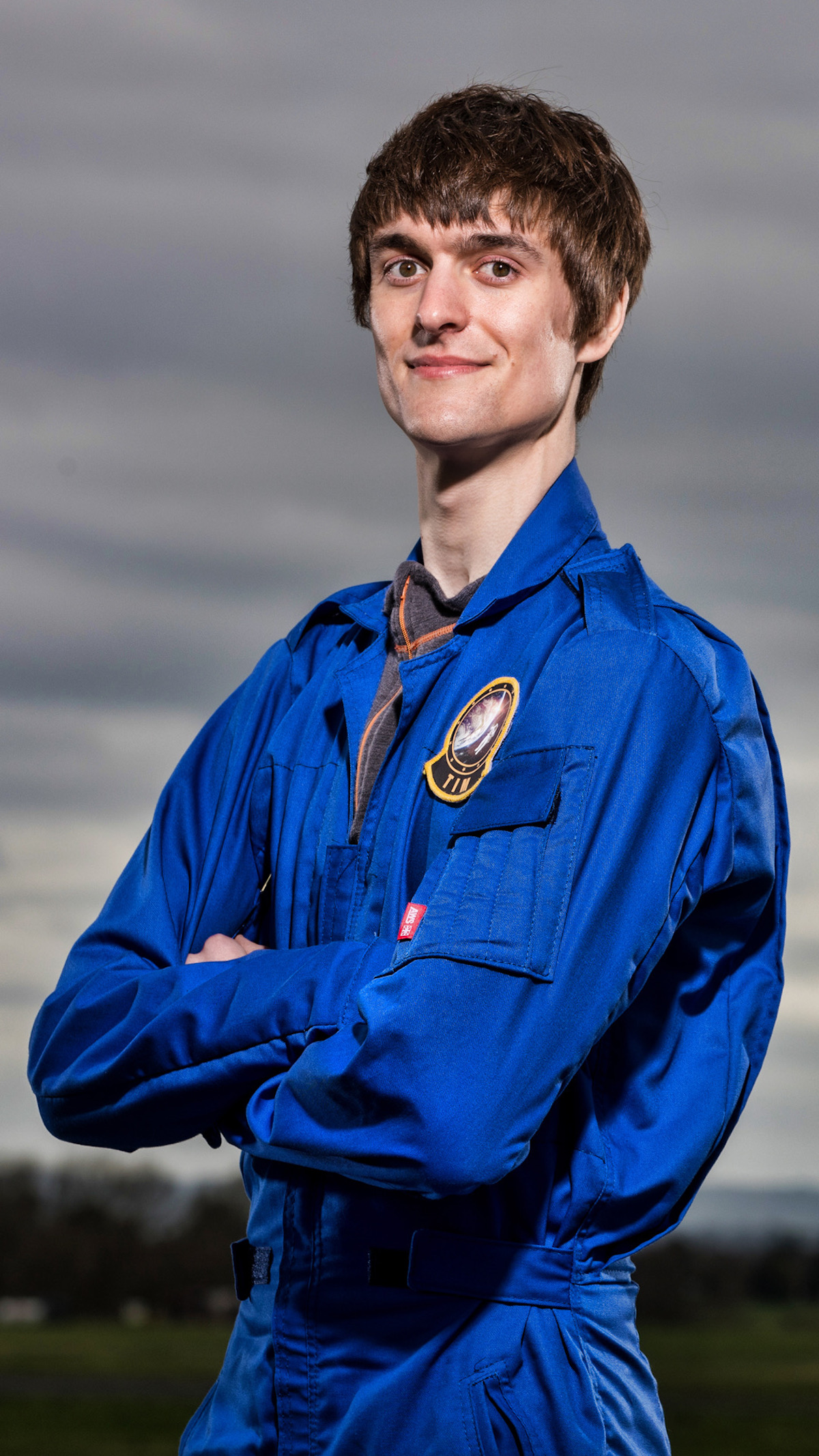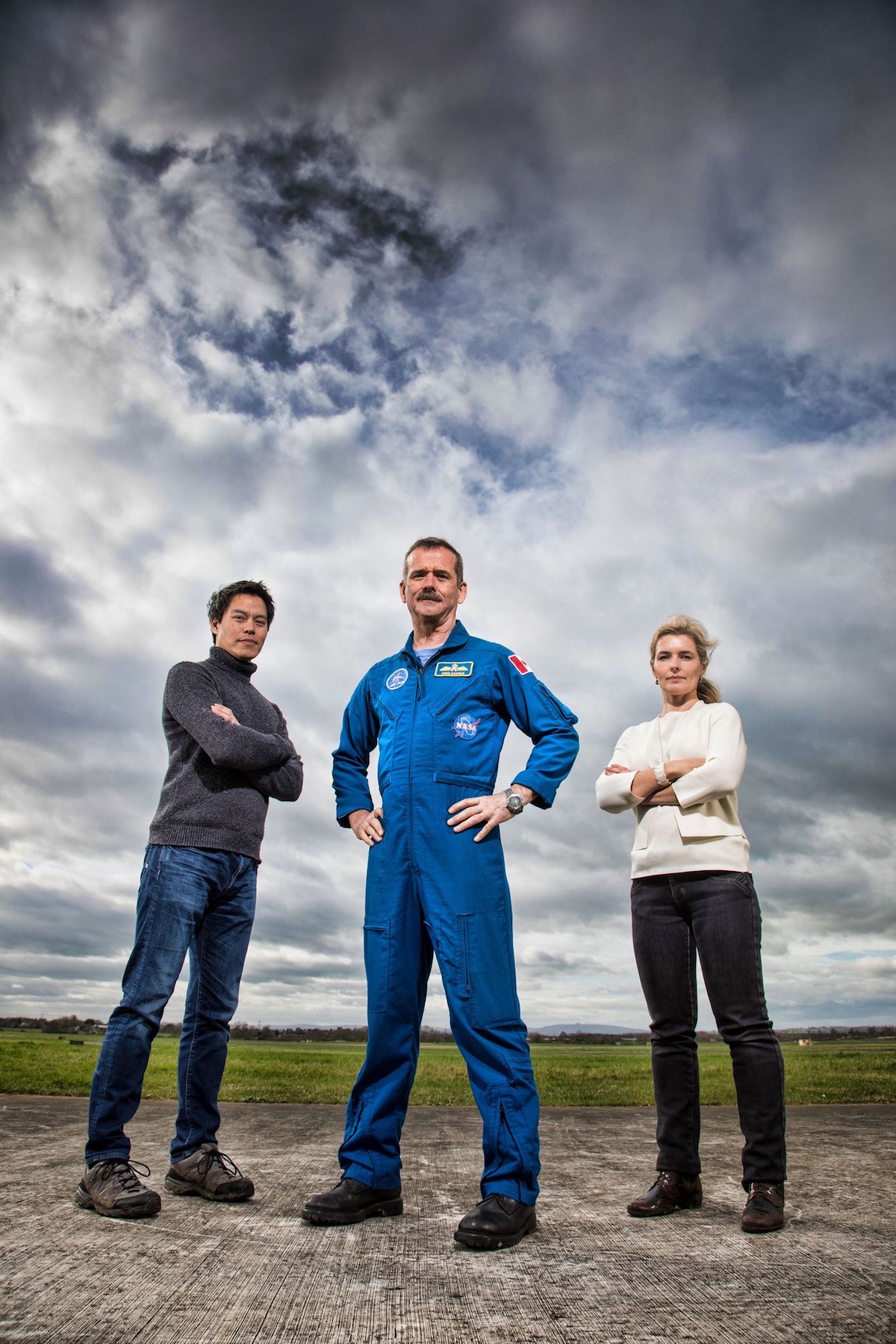I have presented science on television live and pre-recorded.
“Tim is one of those rare people who instantly connects with an audience - in person, and on camera. His enthusiasm, energy, and innocent pleasure in his specialist knowledge make him a joy to work with. ”
Steph’s Packed Lunch
Channel 4, July 2023
Live on Channel 4, I showcased some chemistry experiments to keep the kids entertained during the school holidays.
I worked with producers to craft the sequence beforehand.
Dev Clever career film
Dev Clever, March 2022
I contributed to a careers film.
I spoke about my transition from academia into industry and my day job as a nuclear chemist.
BBC Bitesize Revision
BBC, April–June 2020
In April 2020 I presented on BBC Bitesize Revision as a science expert.
Alongside presenter Katie Thistleton, I gave lessons on chemistry, physics, and biology for secondary school students. The content was scripted, and my delivery was a mixture of improvisation and autocue.
I also helped craft and edit the script and science content.
In total I did eight sessions of filming split over five days.
The Sky at Night: Rosetta: The Comet's Tail
BBC4, November 2019
In November 2019, I made my second appearance as a science presenter on BBC4's The Sky at Night.
The episode centred around ESA’s Rosetta mission which explored comet 67/P. Comets (and asteroids) are some of the remnants left over from the formation of our Solar System, so we can use them to learn how our Solar System formed.
Another way we can study the formation of our Solar System is by studying the rocks that come from these celestial debris — meteorites. This is my specific area of expertise.
The Sky at Night: Expedition Asteroid
BBC4, September 2018
In September 2018, I had my first taste of science presenting on BBC4's The Sky at Night.
The episode centred around NASA'S OSIRIS-REx mission and JAXA's Hayabusa2 mission. Both of these missions will directly collect samples of asteroids and return them to Earth for analysis.
My role was to explain what we already know about asteroids from the rocks that naturally fall from them to the Earth: meteorites.
Meteorites hold the secrets of the earliest history of our Solar System, and probably hold clues about the origin of water and life on Earth.
Astronauts: Do You Have What It Takes?
BBC2, September 2017
In 2017, I had the experience of a lifetime as a candidate on the BBC2 programme Astronauts: Do You Have What It Takes?. I beat thousands for a place as one of twelve candidates to be put through an astronaut selection process under the watchful eye of retired astronaut Colonel Chris Hadfield, space psychologist Dr Iya Whiteley, and an extreme environment physiologist Dr Kevin Fong.
Tests included hovering a helicopter, escaping an underwater capsule, a zero-G flight, induced hypoxia, speaking Russian in a centrifuge, extensive personality profiling, and scuba diving. I made it through to the final with fellow candidates (and friends) Suzie and Kerry, and came runner up.
The response from the TV audience was unprecedented. People of all ages, from all walks of life, connected with the programme and really came on the journey with us when it was aired.
It was an absolute privilege to be part of something that had such a positive influence in society.
If you're looking for a science presenter or are working on a comission:
